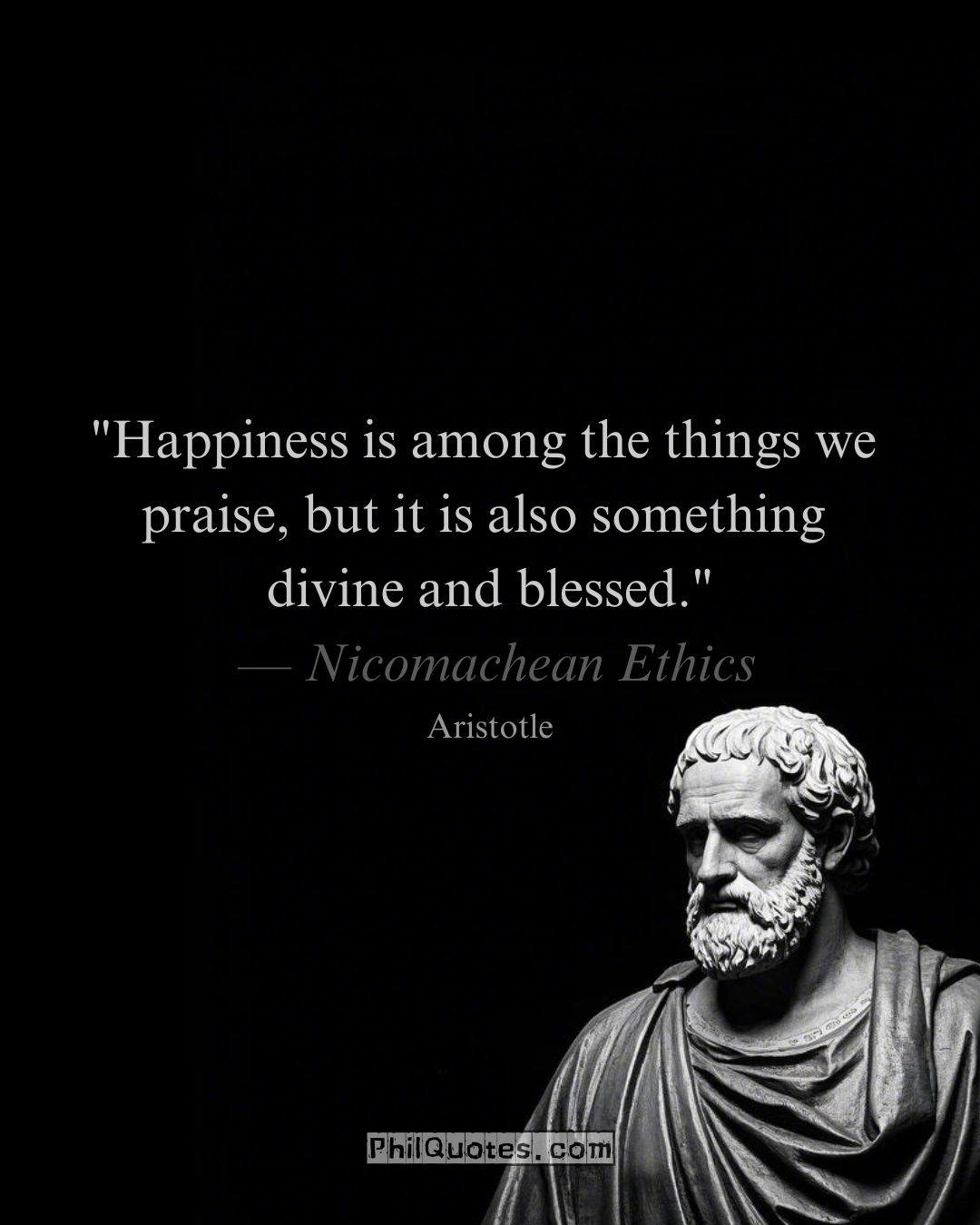
“Happiness is among the things we praise, but it is also something divine and blessed.”
— Aristotle, Nicomachean Ethics, Book I, Chapter 8
Simple Explanation:
Aristotle reveals the dual nature of happiness (eudaimonia) — it’s both humanly admirable (earning praise through virtuous deeds) and transcendent (a sacred alignment with cosmic order). Like sunlight reflecting on water, happiness shimmers where earthly effort meets celestial grace.
Real-World Connection:
① Philanthropist’s Journey →
You donate to education → receive public awards (praise) → feel profound connection to humanity’s future (divine fulfillment) → embody happiness as societal and spiritual union.
② Artist’s Revelation →
A painter creates a masterpiece → critics applaud technique (earthly praise) → experience awe at channeling universal beauty (blessed inspiration) → merge craftsmanship with cosmic participation.
③ The Hidden Polarity →
True happiness is a bridge between realms:
- Earthly Pillar: Justice, courage, wisdom — virtues earning communal respect.
- Divine Pillar: Awe, gratitude, purpose — qualities resonating with eternal truth.